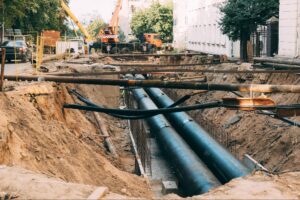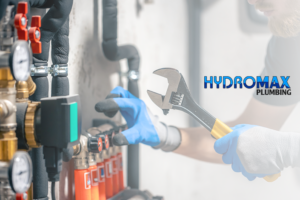Industrial facilities depend on efficient, well-maintained equipment to meet production goals and maintain profitability. However, scaling—buildup of mineral deposits such as calcium, magnesium, and silica—can silently jeopardize performance. This buildup commonly occurs within pipes, boilers, heat exchangers, and other critical components, leading to reduced efficiency, increased energy costs, and potential equipment failure. Industrial descaling—the process of removing these harmful deposits—is essential to restoring optimal system functionality, extending equipment lifespan, and preventing costly downtime.
This article will dive into the mechanics of scaling, how it impacts operations, and the critical role of regular industrial descaling in maintaining system operational efficiency. You’ll gain insights into recognizing early signs of scaling, identifying vulnerable equipment, and how proactive maintenance can save both time and money. Moreover, we’ll highlight how the expertise of Hydromax Plumbing in the Evansville area and surrounding regions can provide customized, professional solutions to ensure your facility operates smoothly and efficiently, regardless of scaling challenges.
The Critical Role of Industrial Descaling
Industrial descaling is the professional process of removing stubborn mineral deposits and other residues that accumulate on the internal surfaces of industrial systems. This buildup, commonly known as scale, forms when minerals naturally present in water—such as calcium, magnesium, and silica—crystallize under changes in temperature or pressure. This process is especially aggressive in equipment like pipes, boilers, and heat exchangers. Once formed, scale acts as a powerful insulator, severely hindering heat transfer. It also progressively narrows pipes, which restricts flow, increases system pressure, and forces pumps to work harder. What begins as a minor efficiency issue can escalate over time, causing corrosion, stress fractures, and even complete system failure.
Therefore, proactive descaling is not merely a cleaning task—it is a critical maintenance strategy essential for restoring functionality, ensuring safety, and protecting your facility’s profitability. A strategic, well-executed descaling program delivers clear and significant benefits across your entire operation.


Restores Operational Efficiency
Mineral deposits on heat transfer surfaces force boilers and heat exchangers to operate harder and longer to achieve the same output. By systematically removing this insulating layer of scale, industrial descaling restores optimal heat and fluid transfer. This allows your equipment to perform at its designed capacity, removing unnecessary strain from critical components and helping your facility maintain peak operational efficiency.
Dramatically Reduces Energy Costs
Even a very thin layer of scale can have a significant impact on your bottom line. By creating an insulating barrier, scale hinders thermal conductivity and forces your systems to consume more fuel or electricity to reach and maintain desired temperatures. Eliminating these deposits through professional descaling directly improves energy efficiency, leading to noticeable and immediate cost savings on your utility bills.
Extends Equipment Lifespan
Scale creates an environment of undue friction, pressure, and heat buildup that accelerates wear and tear on essential components. This added stress can lead to under-deposit corrosion, cracks in pipes, and premature failure of pumps and valves, ultimately shortening equipment lifespan. Regular descaling mitigates these damaging conditions, allowing your machinery to function within its optimal parameters and protecting your high-value assets from costly early replacements.
Prevents Costly Breakdowns and Downtime
The issues caused by scaling—such as blocked pipes, overheating components, and erratic system performance—can quickly escalate into emergency situations. A sudden breakdown not only comes with high repair costs but can also halt production schedules for hours or days, resulting in significant financial losses. Proactive descaling is the best defense, addressing potential failures before they happen and ensuring smooth, predictable operations.
Ensures Consistent Water Flow and Protects Product Quality
In many industries, consistent water flow and pressure are critical for stable and precise production processes. Descaling restores internal pipe dimensions to their original state, guaranteeing reliable water distribution. Furthermore, in sensitive applications like food processing or pharmaceuticals, flakes of dislodged scale can contaminate the end product. Routine descaling eliminates this risk, helping you maintain the high standards your customers expect.
Diagnosing Scaling Issues in Your Facility
To effectively manage scaling, you must first know where and how to look for it. While scale buildup often begins silently within your systems, it eventually manifests through clear, identifiable symptoms. By recognizing these early warning signs and knowing which pieces of equipment are most vulnerable, you can take proactive steps to address the issue before it disrupts production or causes significant damage.
Identifying the Warning Signs
Recognizing the early warning signs of scaling is crucial for preventing costly repairs and unplanned downtime. Staying vigilant for these common symptoms allows facility managers and operators to catch scaling issues early and maintain operational consistency.
- Reduced Water Flow or Pressure: One of the most common signs of scaling is a noticeable drop in performance. As mineral deposits build up, they narrow pipes and restrict water flow. If you observe reduced output from your systems or notice that pumps are straining to maintain normal pressure, it is a strong indicator that scaling is obstructing your plumbing network.
- Prolonged Heating Times or Temperature Fluctuations: When the surfaces of heat exchangers or boilers become coated in scale, their ability to transfer heat is severely diminished. This forces the equipment to work much harder and longer to reach its target temperature. If you experience slow heating cycles or erratic temperature variations, particularly in steam systems, scaling is the likely culprit.
- Unexpected Increases in Energy Bills: A sudden and unexplained rise in your facility’s utility bills, with no corresponding change in production, often signals a hidden loss of efficiency. The insulating barrier created by scale forces equipment to consume more energy than necessary, a cost that is directly reflected in higher monthly energy expenses.
- Unusual Noises from Equipment: System components that are compensating for restricted flow or blockages may begin to produce atypical sounds. Hissing, rattling, or clanking noises coming from pipes, pumps, or boilers can be an early sign of internal scaling issues. Diagnosing these sounds early can help you address the problem before it worsens.
- Visible Deposits on Valves or Pipes: While most scaling occurs internally, it can sometimes manifest on the outside of your equipment. A crusty, whitish buildup on external pipes, fittings, or valves is a clear visual indicator of a mineral-rich environment. These external deposits often hint at more extensive and problematic scaling hidden within the system.
- Frequent Alarms or Overheating Issues: Cooling and heating systems that are heavily impacted by scaling may begin to trigger system alarms or suffer from frequent overheating. These issues not only disrupt operations but also compromise the overall reliability of your critical systems.
Common Equipment Vulnerable to Scaling

Scaling can occur wherever water circulates, but certain types of industrial equipment are particularly vulnerable due to their design, function, and operating conditions. Focusing your diagnostic and maintenance efforts on these key areas is critical to maintaining optimized performance.
- Pipes and Plumbing Networks: Serving as the circulatory system for your facility, pipes are highly susceptible to scale buildup. Mineral deposits accumulate along the interior walls over time, restricting flow, increasing pressure, and reducing overall efficiency. This is especially problematic in long pipe runs or sections with sharp bends.
- Boilers and Heating Systems: Because they operate at consistently high temperatures, boilers are prime targets for aggressive scale formation. As water is heated, dissolved minerals rapidly precipitate and adhere to heating surfaces, forming a hard, solid layer of scale that severely impedes heat exchange and can lead to dangerous pressure irregularities.
- Heat Exchangers and Cooling Equipment: The primary function of heat exchangers is to transfer thermal energy, a process that is immediately compromised by the insulating effects of scale. Cooling towers and other cooling equipment are similarly vulnerable, as the process of water evaporation naturally leaves behind concentrated mineral residues that reduce cooling efficiency.
- Water Treatment and Delivery Systems: For facilities that draw water from wells or other natural sources, the high mineral content of the water promotes rapid scaling. In these intake systems, scale can obstruct flow, clog filters, and disrupt initial water treatment processes, challenging your operations from the very beginning.
- Industrial Equipment in Manufacturing and Food Processing: Many specialized systems in manufacturing plants and food processing facilities rely on precise temperature control and absolutely stable water flow. Any scaling in these processes can lead to inconsistent product outcomes or contamination, making routine descaling essential for maintaining high quality standards.
Getting Started with Industrial Descaling Services
Effectively addressing industrial scaling requires more than just powerful equipment; it demands specialized expertise, advanced diagnostic tools, and a deep understanding of complex industrial systems. Hydromax Plumbing has built a strong reputation in the Evansville area and surrounding regions by delivering effective, reliable, and tailored descaling solutions. Our licensed and insured team is committed to a process that not only resolves your current scaling issues but also helps protect your facility from future problems, all while minimizing disruption to your critical operations.
Our approach is clear, methodical, and customized to the unique needs of your facility.
1. Comprehensive System Evaluation
Our process begins with a thorough and detailed evaluation of your facility’s equipment. Our technicians conduct an in-depth assessment of all vulnerable systems—from pipes and boilers to heat exchangers and cooling towers—to accurately pinpoint the extent and location of the scaling. We utilize advanced diagnostic tools, including high-resolution video camera inspections, to look deep inside your plumbing networks. This allows us to identify problem areas with precision, ensuring that our descaling efforts are targeted and effective.
2. Customized Descaling and Maintenance Plan
Recognizing that no two industrial facilities are the same, we move from evaluation to creating a fully customized descaling plan. This tailored strategy is crafted to align perfectly with your specific operational needs, including production schedules, equipment requirements, and internal safety protocols. We work with you to schedule our services during planned maintenance windows or other natural downtimes, ensuring that the entire descaling process is performed without affecting your core business operations.
3. Precision Execution with Advanced Technology
With a strategic plan in place, our highly trained technicians execute the descaling process with precision and care. We employ proven and powerful methods, such as high-pressure hydro-jetting, which uses water to safely and effectively break down and flush away even the most stubborn scale deposits. Our licensed team works efficiently to remove buildup while constantly monitoring your system’s integrity, ensuring a complete and thorough cleaning that protects your valuable equipment.
4. Post-Descaling Insights and Ongoing Support
Our commitment to your facility’s performance doesn’t end when the job is done. After the descaling process is complete, we provide you with detailed feedback on your equipment’s condition, along with expert recommendations for an ongoing preventative maintenance strategy to help prevent future scale buildup. Furthermore, we understand that emergencies can happen at any time. Should an unexpected scaling issue arise, Hydromax Plumbing offers 24/7 emergency support to provide a rapid response and minimize any potential disruptions to your facility.
Embrace Proactive Descaling for Long-Lasting Operational Success
Scaling is a hidden yet formidable challenge that can disrupt industrial operations, drive up energy costs, and compromise equipment longevity. Regular industrial descaling is not merely a maintenance task—it’s an investment in your facility’s efficiency, safety, and long-term profitability. Through the proactive removal of scale, you prevent costly repairs and maintain smoother operations.
With tailored solutions and advanced techniques, Hydromax Plumbing stands ready to help your facility overcome scaling challenges. Don’t let scale hinder your performance—schedule a consultation with us today and allow expert industrial descaling pave the way to sustained operational success.




